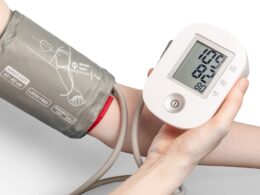Scientists have long suspected that stress, sleep, and diet take a toll on our brains. Now, recent studies are connecting the dots more clearly, showing that high levels of cortisol—the so-called “stress hormone”—can shrink parts of our brain and cloud our memory, even before obvious signs of dementia appear.
Chronic Stress and the Hippocampus
Cortisol isn’t all bad—it helps us wake up in the morning and powers our fight-or-flight response. But when it sticks around at high levels from ongoing stress, it’s a different story. According to a 2018 study published in Neurology, people with elevated cortisol during midlife had reduced brain volumes and lower memory performance—even if they weren’t showing any clear symptoms of dementia. The hippocampus, which is basically the brain’s memory headquarters, seems especially vulnerable. Research—including work done at the University of Iowa—shows that too much cortisol over time can actually shrink this area and interfere with neurogenesis (the birth of new brain cells).
Diet, Sleep, and Recovery
It’s not just stress that’s to blame. Just a few days of indulging in a high-fat Western diet—think burgers, fries, hot dogs—can quickly impair memory by rewiring pathways in the hippocampus. Scientists at the University of North Carolina recently identified a mechanism involving cholecystokinin (CCK) interneurons. These specialized brain cells act like brakes in the memory center; when overstimulated by fatty foods, they can silence other neurons needed for forming new memories.
Sleep is another critical factor. Chronic sleep disruption raises cortisol even more, creating a vicious cycle: poor rest leads to higher cortisol, which further impairs memory consolidation. If left unchecked, this cycle can lead to persistent forgetfulness and trouble concentrating.
But there’s hope. Research suggests that early interventions—like reducing stress through mindfulness practices or medication—can help the brain recover some of its lost volume and function. Even short-term damage from high-fat diets can be reversed with approaches like fasting or targeted treatments.
The bottom line? While we can’t eliminate cortisol—it’s part of being human—we can take steps to keep it in check and protect our brains. And next time you reach for a weekend burger binge or pull an all-nighter, your hippocampus just might thank you for thinking twice.










